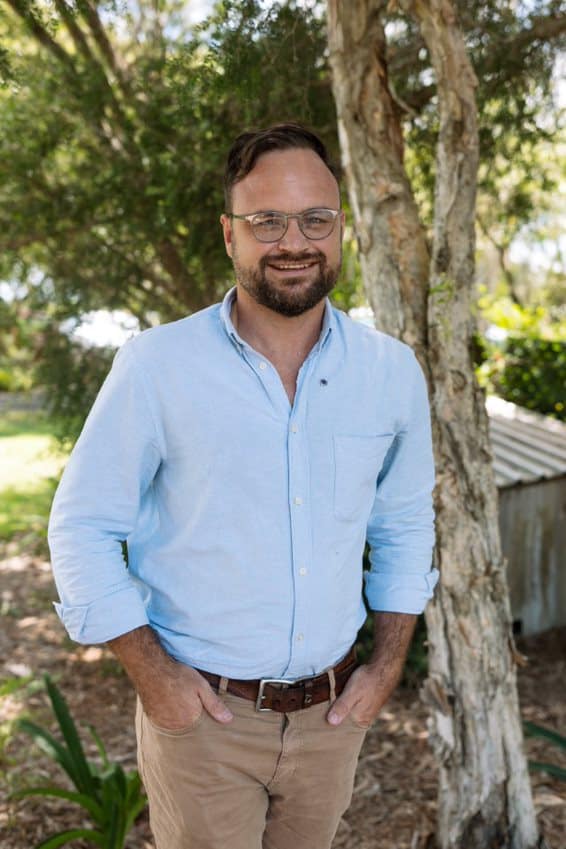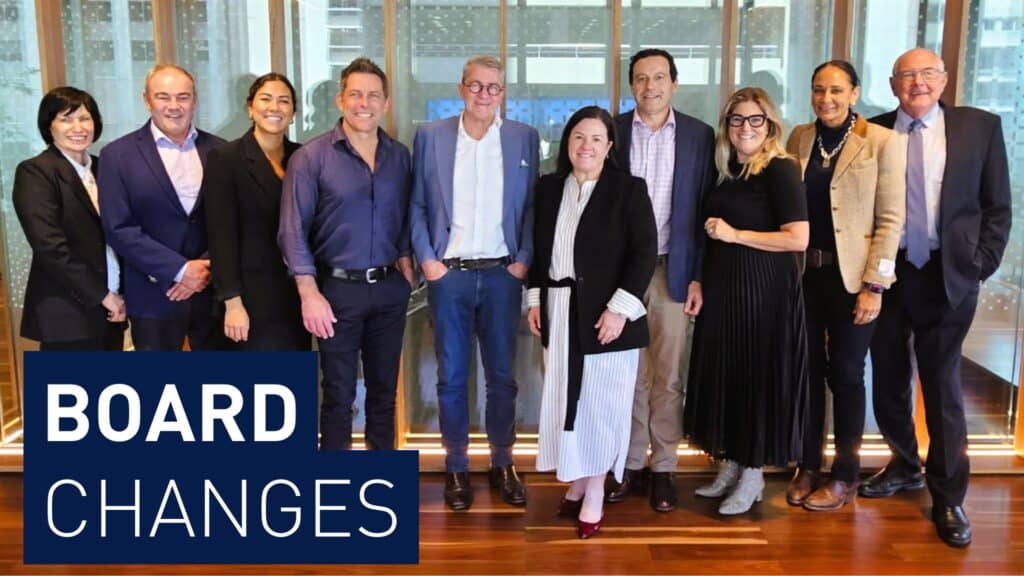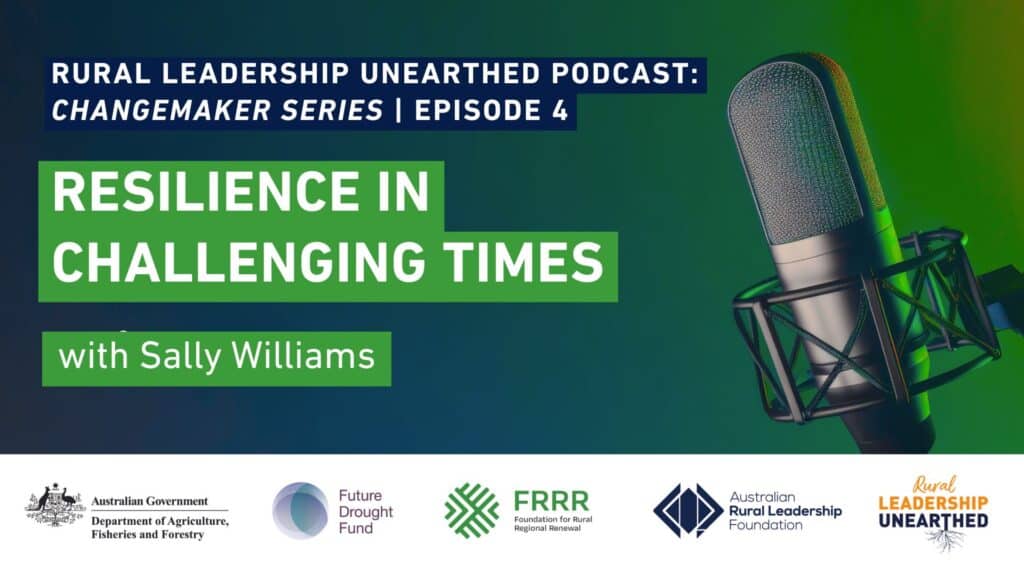The New South Wales Northern Rivers region has faced a torrent of adversity over the last few years. Between complicated COVID border restrictions, a blistering drought and then record setting floods, the region is desperate for some reprieve.
And thanks to a tailored leadership opportunity, Nathan Bourne might just have some answers.
For 12 years Nathan has called Ballina home. As an engineer, he first went to the region to work on a road construction project. Fate intervened, he met his wife and now it’s an idyllic place to bring up his family and run a project management consultancy.
Ballina is just under 100 kilometres south of the Queensland border, and despite those recent disasters, Nathan cites the border closures dictated by the COVID pandemic in 2020 as the most devastating for his community.
“The region is heavily reliant on tourism and being able to access services north of the border. When the borders were shut, we were cut off from all services, including those needed in an emergency,” he said.
“It had a big impact on us as a community. The tourism decline to local businesses over that time was devastating as well.”
Realising his community needed to be more resilient to deal with future disasters, Nathan decided to participate in the NSW Northern Rivers Leading Australian Resilient Communities (LARC) program — an initiative of the Australian Rural Leadership Foundation and the Regional Australia Institute.
Designed to enhance the inherent strengths in regional communities, with a focus on groups and individuals who are committed and invested in where they live, the LARC program attracted Nathan with its promise of community-based content. As an avid local volunteer, Nathan recognises the immense power of people and their potential to drive positive change.
Like many participants in the LARC program, Nathan says this investment goes beyond personal involvement and extends to genuine concern for the community’s future. This includes seeking ways to contribute to the well-being and growth of the community and the importance of leaving a positive impact for future generations.
Initially, the impact from border closures was a negative one, with residents unable to access their workplaces and healthcare services due to the strict conditions. But in the longer term, Nathan said the region has benefited from more people moving to the area, motivated to leave dense urban centres to avoid future lockdowns. However, a bigger population means more pressure on already stretched services.
“More people in the region have increased the need for schools, healthcare, better road networks and facilities. The physical transportation routes need to be rethought too,” he says.
“We need to include these major changes in the makeup of our community while planning to deal with future natural disasters like flooding or major rain events.”
Part of the LARC program is completing a group project and considering the vast amount of problem-solving the region has had to do during events like border closures or major flooding, Nathan’s project was Northern Rivers Community Matters.
“We wanted to put together a group of people from across the region who would be able to assist others in getting through red tape. We wanted to get issues resolved in a number of fields but use existing intelligence within our community.”
Their test case was a local Landcare group, helping it to establish a disaster recovery plan and liaising with local land services. Nathan is also determined to see his community ready for the next disaster. His vision is for a proactive, rather than reactive, community.
“One of our key conclusions is that every time an issue occurs, whether it’s a natural disaster, an industry shut down, a drop in tourism, or Covid, everyone starts from scratch in how to respond to it,” he said.
“The idea is that the Northern Rivers Community Matters team is there to coordinate responses and stay a step ahead.”
This will mean working with community groups and connecting them to the relevant state or local government support or agencies as well as local experts. The diverse range of skills and networks within the Northern Rivers LARC cohort has been pivotal to their initial success and will be the driver taking the group forward. It’s imperative that planning must be holistic and include economic, environmental, social and financial elements.
Throughout the course, Nathan’s idea of what a resilient community looks like evolved.
“For me previously, resilience was just like bouncing back, that ability to come back to where you once were quickly. Now I know it means that every individual gets a chance to recover and access the support processes that allow them to do that. Resilience isn’t about waiting for an issue or event to occur. It’s about actually being prepared for it.”
The network Nathan has built out while completing the LARC program and the impact from the combined areas of expertise excites him. Not only has the group demonstrated diversity within networks, but it also means there are tangible, real-life initiatives springing from within the community.
“We’re growing as a region and we need to do that in a way that considers all of the relevant economic, financial, social and environmental impacts. We need to survive and grow in a sustainable way,” he said.
“The scenarios for doing this that we worked through in the LARC program ensures work can be done by people at the grassroots, not from a top level down and that means it’s sustainable.”





